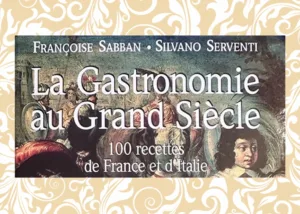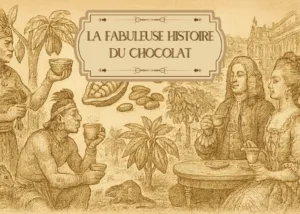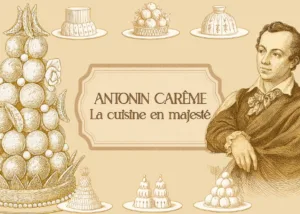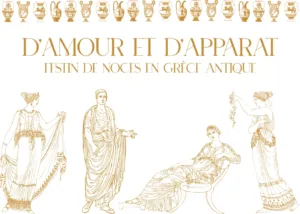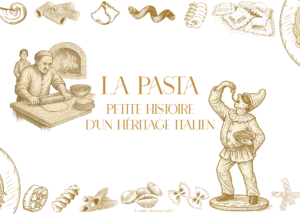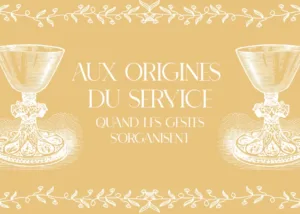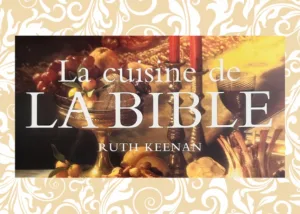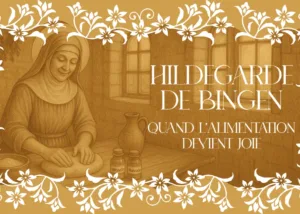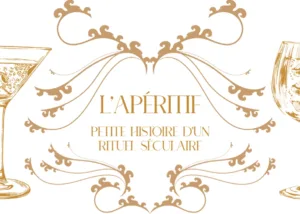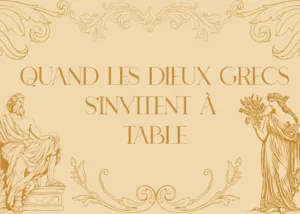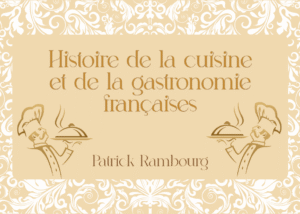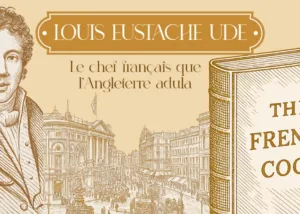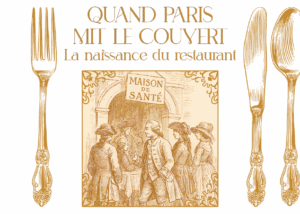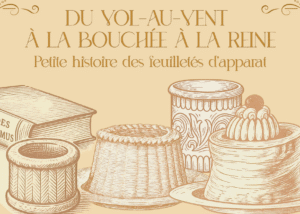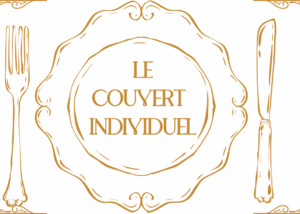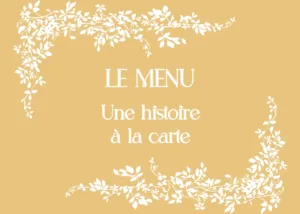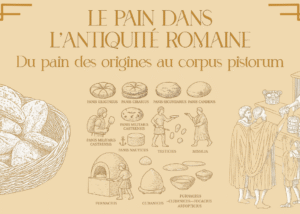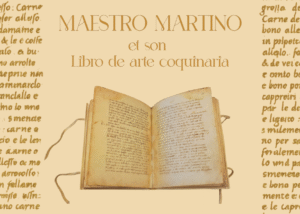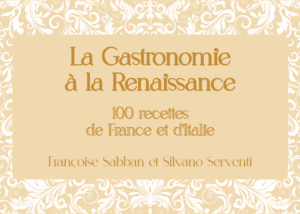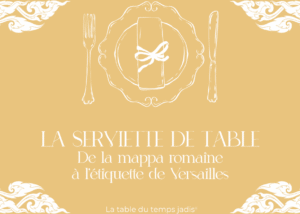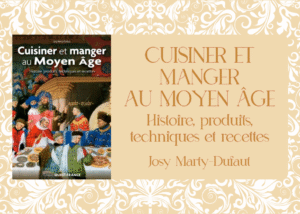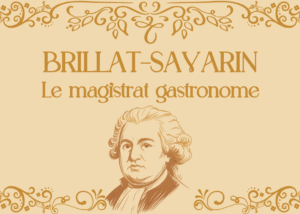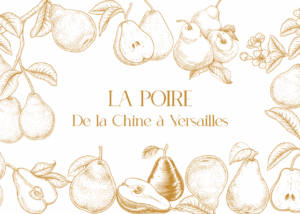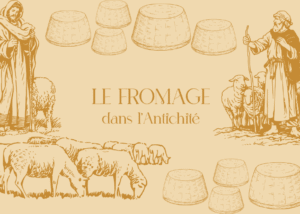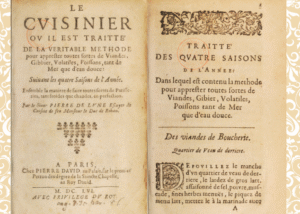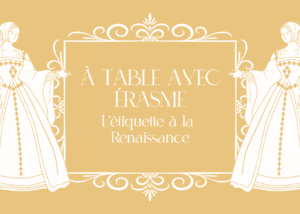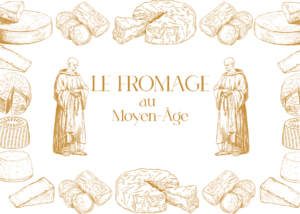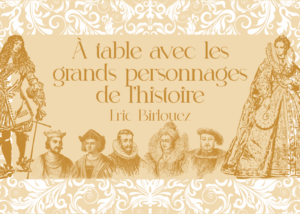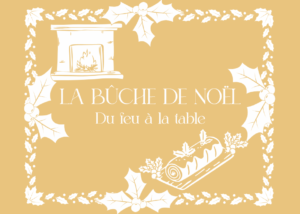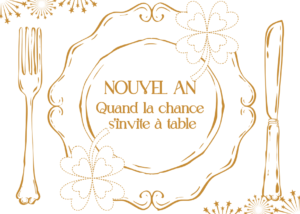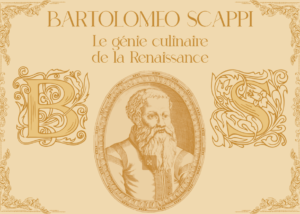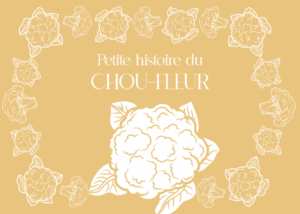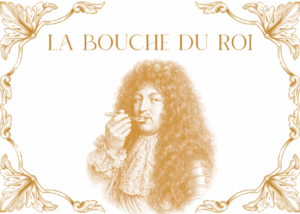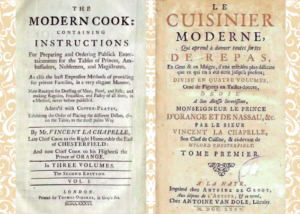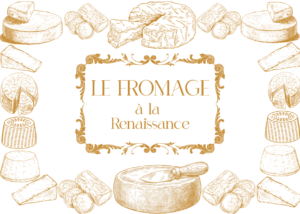Louis Eustache Ude
Le chef français que l’Angleterre adula

Avant Escoffier et bien d’autres, un nom fit rayonner la cuisine française sur les rives de la Tamise : Louis Eustache Ude. Fils d’un cuisinier de Louis XVI, il ne grandit pas dans les salons dorés mais dans le sillage discret des fourneaux royaux. C’est pourtant de l’autre côté de la Manche qu’il bâtit sa légende, régnant sur les cuisines des clubs londoniens les plus exclusifs. Français de naissance, célébré par l’Angleterre, il incarna une passerelle culinaire entre deux mondes. Derrière ses sauces savantes et ses exigences inflexibles se cache une histoire d’exil, d’orgueil et de raffinement. Ce portrait redonne voix à un chef que l’Angleterre adula… et que la France oublia.

Premiers feux d’un maître cuisinier
Louis Eustache Ude voit le jour en France vers 1768. Sa mère est modiste, son père travaille aux fourneaux du palais de Versailles. Il y rejoint un temps ce dernier, côtoyant les vapeurs des sauces et les bruissements des casseroles. Mais le destin d’Ude est tout sauf linéaire : il quitte les cuisines pour explorer mille métiers — bijoutier, graveur, imprimeur, marchand d’étoffes, acteur de théâtre… Il court après sa voie comme on cherche une lumière dans le brouillard.
Pendant la Révolution, certains le disent exilé. Pourtant, les témoignages les plus fiables — ceux d’Abraham Hayward et de Joseph Favre (Dictionnaire universel de cuisine, 1892)— affirment qu’il reste en France, discret, obstiné. C’est là qu’il revient à son premier feu : la cuisine. Peu après, il devient chef d’hôtel de Letizia Bonaparte, mère de Napoléon. Un poste austère, certes, mais décisif : il y affine ce qui fera bientôt sa renommée — un sens aigu de l’ordre, une élégance sans ostentation, et l’idée que la cuisine peut être un art souverain.

L’Angleterre comme terre d’ascension
Après son passage chez Laetitia Bonaparte, Ude quitte la France. Arrivé à Londres vers 1808, il atteint rapidement une renommée sans précédent. C’est au service de William Philip Molyneux, 2ᵉ comte de Sefton, qu’il déploie tout son art. On rapporte qu’il y recevait un salaire annuel de 300 £ — une somme généreuse — et que Sefton lui légua même une rente de 100 £ à sa mort en 1838, bien que le cuisinier eût quitté son service depuis 1815. La table de Sefton devient célèbre pour ses dîners raffinés, où l’élégance des mets rivalise avec le raffinement des convives.
Après avoir quitté le comte, Ude est nommé chef du prestigieux United Service Club, fréquenté par l’élite militaire britannique. L’historien A.L. Humphreys écrira plus tard que « ses dîners étaient les meilleurs de tout Londres ». Il y reste quelques années, avant de rejoindre la maison du duc d’York, Frederick Augustus, fils de George III. Là encore, son talent culinaire sert la cause du prestige britannique, savamment relevé à la française.

The French Cook
En 1813, alors qu’il officie encore chez le comte de Sefton, Ude publie The French Cook. Cet ouvrage en anglais, destiné aux cuisiniers des grandes maisons et aux hôtes soucieux de briller à table, codifie avec clarté l’art culinaire française. Plus de 300 recettes y sont soigneusement organisées : potages, sauces, viandes, entremets… mais aussi conseils pratiques, menus, et règles d’étiquette.
Ude y expose sa vision d’une cuisine élégante, disciplinée, précise. Chaque plat reflète un idéal d’ordre et de goût, loin des improvisations rustiques. Le livre connaît un grand succès : il est réédité au moins huit fois de son vivant, et enrichi à chaque édition — la cinquième (1818) en compte déjà près de 500 recettes. Sans chercher l’innovation à tout prix, Ude propose un modèle : celui d’un raffinement accessible, d’un art de vivre structuré, où la table devient le théâtre du savoir-vivre à la française.

Le faste du Crockford’s
En 1827, Ude est recruté pour superviser les cuisines de son nouveau et très select club de jeu, le Crockford, installé rue St James. Le Standard annonce la nouvelle : « M. Ude, célèbre dans le monde culinaire, est engagé par M. Crockford avec un salaire de 1 200 £ par an. » Une somme colossale, censée couvrir les frais de toute sa brigade. Il installe sa famille à deux pas, rue Albemarle. Sous sa direction, le Crockford’s devient un haut lieu du raffinement gastronomique : sauces exquises, poissons délicats, service réglé au millimètre. Les membres, séduits par ce luxe, glissent sans résistance de la salle à manger aux salons de jeu. L’historien A.L. Humphreys l’écrit sans détour : « Ils étaient nourris des meilleurs mets, abreuvés des plus grands vins, puis attirés vers les tables sans difficulté. »
Mais en 1838, une dispute éclate avec le comité du club. Ude quitte les lieux avec fracas, après onze années de règne. Dans une lettre à sa sœur, le jeune Benjamin Disraeli — futur Premier ministre — ironise sur la scène : «Ude a dit au comité qu’il valait 4 000 £ par an. Son successeur est un échec total — je pense que le grand artiste reviendra d’Elbe. » Il n’en sera rien. Le chef plie ses ustensiles, tourne la page, et entre dans une retraite confortable, loin de l’agitation des fourneaux.
De Versailles à Londres, des casseroles du palais aux fastes feutrés de Crockford’s, Louis Eustache Ude incarna une figure rare : celle d’un chef français ayant marqué l’Angleterre sans jamais renier ses racines. Avec exigence, fierté et un sens aigu du détail, il fit rayonner la cuisine française outre-Manche — et cela lui vaut aujourd’hui encore notre reconnaissance.

Find other blog articles
Find other blog articles



